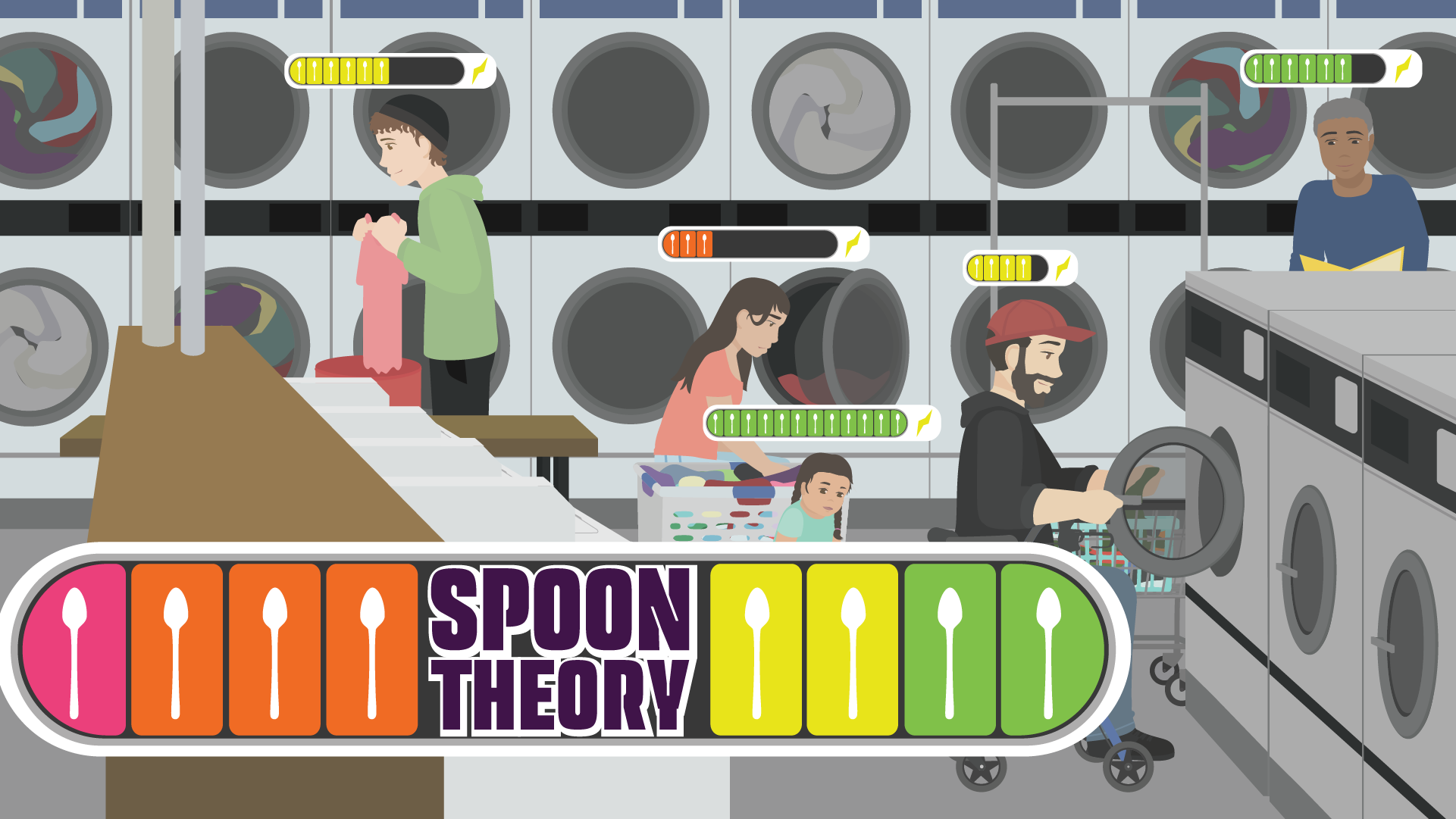Spoon Theory is a popular idea that uses spoons to represent the amount of physical and mental energy a person has for daily activities. Each spoon represents a set amount of energy and multiple spoons represent a person’s amount of energy for the whole day. The number of spoons a person has for each day depends on how they are feeling. When people do not “have enough spoons” to do something, it means they do not have enough energy.
Although everyone’s number of spoons changes from day to day, people with disabilities might always wake up with fewer spoons than non-disabled people do. Disabilities are physical and/or mental differences that impact how people see, hear, move, think, learn, communicate, handle emotions, and their daily needs. Even if people have the same disability, their symptoms and energy levels might be different from each other, or different from day to day.
Getting out of bed, taking a shower, cooking, working, and socializing all drain someone’s spoons. The same activity can even cost a different number of spoons – more energy – depending on the day.
For example, morning chores, or having friends over to watch a movie together, might cost one person half a spoon on one day and two whole spoons on another day.
Not knowing how many spoons you will wake up with, or the energy cost of activities from one day to the next, makes it hard to plan your day and meet other people’s expectations. Sometimes people do not have enough spoons and their plans for the day must change. When people get frustrated with their, or others’, energy levels, remember they are doing the best they can with the spoons they have.
Spoon Theory highlights how individuals with disabilities often start each day with fewer spoons, or energy, than those without disabilities. This constant challenge of managing limited energy can put individuals with disabilities at a higher risk for substance use. The strain of navigating daily activities with fewer spoons can lead some to seek relief through substances, as a way to cope with pain, fatigue, or emotional stress. However, while substances might provide temporary relief, they can further deplete spoons over time, creating a harmful cycle that is difficult to break. Individuals with disabilities face unique challenges that can make them more vulnerable to substance use, emphasizing the need for targeted support and understanding. By recognizing the increased risks and the complex relationship between disability, energy levels, and substance use, we can better support those who are managing these intertwined challenges.
IMAGE ID: A busy laundromat with a man sitting in his walker loading laundry, above his head a small energy bar already lowering in energy. Behind him a very tired young mom loads laundry while her full energy toddler sorts socks. An older man in the corner reads a magazine while waiting, his energy bar still high.

